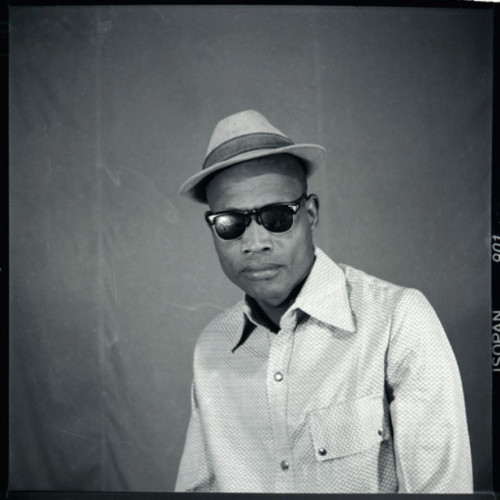
Clic Clac Baby, photography. 1960s (Ivory Coast).
“Soldiers had become insensitive living dead…”
Erich Maria Remarque
“In the midst of this dystopian nightmare, there is the deepening abyss of inequality, one that not only separates the rich from the poor, but also increasingly relegates the middle and working classes to the ranks of the precariat. Concentrations of wealth and income generate power for the financial elite and unchecked misery for most people, a fear/insecurity industry, and a growing number of social pathologies.”
Henry Giroux
“The concept or notion of ‘child’ or ‘childhood’ was absolutely marginal until the modern period. However, with the gradual loss of the generational difference implied by modern, democratic, negotiational strategies, between, what were called parents and children, we have deleted again the notion of child, as child. The term ‘child’ means nothing except in relation to the term ‘parent’.”
Rob Weatherill
I have noted a couple things these last few weeks. One is an increasing desire in many people, certainly Americans, to be visible, to be certain they are noticed. It does not matter who notices them, for it is the spectacle that does the noticing, in a sense. They don’t really have to be recognized for who they are, but only to know, to feel certainty, that the system saw them. The second thing is a growing (and I thought this was impossible, really) rejection of dialogue. A refusal to discuss or debate. On social media a journalist I know very slightly (who writes for The Nation and other such liberal outlets) posted an article on the reaction in media to the halftime performance of Beyonce. The piece was sort of an ersatz feminism that posited a binary world that consisted of celebrity singers. There is no point in delving into the article, because it was silly, but the reaction of the journalist was to banish any criticism of her position (I was told I was *mansplaining*). But this is very telling in a way because if the world view now embraced by *generation now*, those today in their twenties, say, is one in which celebrity is viewed as an essential feature of social analysis, then a crucial awareness of corporate marketing has gone missing. And in this world the clear desire is for consensus. The U.S. has always been a culture of consensus, but today it is nearly pathological.
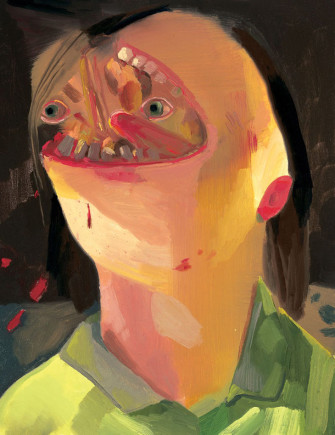
Dana Schutz
This the collective non-identity of a society that recognizes only a manufactured *now*. This was one of Jonathan Crary’s great points, I think, that the spectacle today ‘celebrates a hallucination of presence’. And this hologram of presence takes on the quality of a private movie. And maybe not even that, maybe its closer to the sort of backyard play children put on for their parents, and which the parents film on, today, their smart phone. People assume roles, and they analyze the world through an infantile fantasy show in which they have been cast to play a certain part (journalist, writer, painter, musician, activist, etc). Social conscience becomes intwined with being a star (making a guest appearance in The Spectacle). The recent announcement of Zizek as key speaker at Left Forum in NYC is a sort of play, too. An infantile fairy tale story with a mixture of ideas so vague as to be almost unidentifiable, but one in which celebrity subsumes all other problems. Zizek is a figure in the spectacle. But then Zizek is also a corporate invention, if not directly, then indirectly almost without argument. The journalist stroke feminist who chided my *mansplaining* operates in a hermetic cyber realm where somehow, someway, Beyonce is an exemplar of female empowerment. Zizek and Beyonce. Donald Trump and Hillary. These are all cartoons. And in this hallucination of presence these characters appear and disappear, and much is written about them and people get very excited. And all of it hides the real world, the actual genocides going on in Gaza, the continuing horrors of Iraqi occupation, and the servitude imposed on millions around the globe. And popping up in these fluid private movies, those not-official movies, but those private streaming sites in your own brain, will come a Sean Penn or Angelina Jolie or whoever. That the world of western consciousness, of the new *now*, is one that can create a Vanessa Beercroft, for example, speaks to the genuine insanity taking place, but more, the dark psychotic underside of this hallucination.
http://www.godammit.com/2011/01/17/vanessa-beecroft-what-a-fucking-cunt%E2%84%A2/

Vaclac Chochola, photography. (Prague 1967).
The fact that Beyonce will appear shortly in sold out shows in Israel, and yet one is seemingly barred from mentioning this, is very disturbing. And it reminds me a bit of what Enzo Traverso wrote regarding the lack of transmissible experience. It is what Benjamin said in his essay The Storyteller. World War 1 had introduced a new level of terror for soldiers, and a debilitating fear and it was one they could not find ways to express. Nothing captured the numbing horror of such industrial level violence. I cannot help but think we are even now living in the psychic afterglow of that. That Hiroshima, and then Fallujah, and now Syria are, as metaphors, the glowing embers of that wrecked consciousness, the interruption of life that was The Great War. There is a patina of the inexpressible that covers discourse in the West today. And it carries with it an underside, a shadow realm. And this shadow is linked to an evolving form of narcissism that in turn is connected with an addiction to screen-image.
Now, if one approaches the formation of this world view, this celebrity screen world view, it seems as if something of human imagination has atrophied. Helene Cixous writes very well about the imagination. She says…“Writing, in its noblest function, is the attempt to unerase, to unearth, to find the primitive picture again, ours, the one that frightens us. Strangely, it concerns a scene. The picture is not there without a reason.” This initiation into what art really is about always contains a scene, a theatrical form of scene. Cixous asks why a scene? Is it the scene of the crime? And she answers yes, because “we are the audience of this scene: we are not in the scene; when we go to the theatre we are not on stage.” And then she says something that lies at the heart of this. “We are witnesses to an extraordinary scene whose secret is on the other side. We are not the ones who have the secret.”
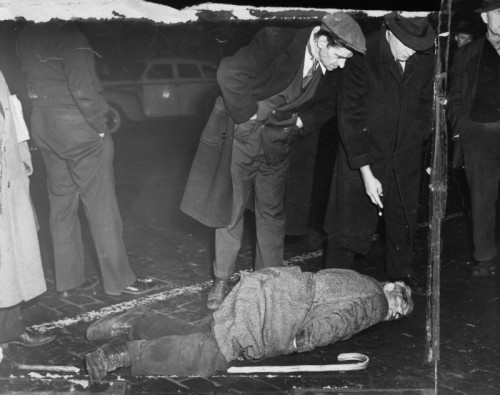
Wegee, photography.
There is in all great writing, and really, in all significant art, a kind of descent. This was the entirety of Cixous’ book, in fact. And partly, to speak this way is to invite accusations of lacking empirical rigor, but such reactions are predictable today. Cixous describes it as a kind of metaphysical ‘going to school’. And she quotes Bernhard and his scene at a butcher shop, and Kafka passing a Catholic cemetary. Scenes of children on the way to school. These are the metaphors of learning. Of maturation. And always include death. Today, the metaphorical journey to school takes place on an iPad. And not to sound curmudgeonly about technology, but only to suggest when corporate ruling class control of our lives is so acute, our developmental imagination is crushed. And part of these ruling class values, this system of control, is Puritanical. The elimination of *death* from our new schooling, is both literal and metaphorical. Cixous says there is always a door, too. And we either enter through that door, or we don’t.
I was on social media this week where on a thread about culture (as I recall anyway) a woman commented, with great hostility, that art was useless and just navel gazing and that pretty pictures were only for the elite. This is a trained response. She has been told and conditioned to think this way. It is a useful channel for feelings of rage. It deflects that rage from its more appropriate target. Cixous says that writing is a way of learning to die. And it is, in the sense that the extremities of life are the gift of the dead. And it is obvious by now just how media manipulates the idea of death. It is either given a new-age sentimental context, or it is buried beneath an onslaught of statistics. However it is treated it is distanced somehow. In mass media the dead are only actors playing a part. For an intimacy with death allows us to learn something about both intimacy itself, and about what it means to be alive. To be alive means to carry with us both an immortality and a mortality. And the great example she gives is Dostoyevsky, who was condemned to death, was in front of a firing squad in fact, before being pardoned. That experience is in the DNA of every sentence he ever wrote.
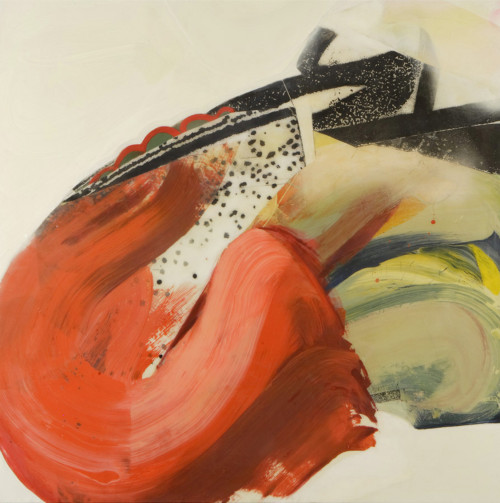
Phillis Ideal
So this scene, to which are witnesses, has a secret that is (as Cixous puts it) on the other side. This is much like what I have written about the *off-stage*, that the real story is that one hidden from view. And children know this because they always want to look at what is in the wings, or behind the flats. There is a primal curiosity about what can’t be seen. Now, Bernhard was very sickly as a child, and at eighteen was hospitalized and given little chance for recovery. So he began to write. As he said “we comprehend that it is necessary to write.” In one sense this is psychoanalytical, and Cixous acknowledges this; that writing is both an erection, and a resistance to castration. It is many other things as well, of course. I have known two women who found a parent dead from suicide. One from a self inflicted gun shot and one from hanging. Both were around twelve years old when they found the parent. And for both, that discovery shaped their character permanently. Everything forever took place in the shadow cast by their parent’s corpse (one was a mother, one a father).
The fact that such a traumatic event would color a person’s life forever will not seem surprising to anyone. And yet, that fact is rarely contemplated. Why should it? Life is very long for many people, it goes on for decades. Why should one single moment change everything? What about less severe trauma, a humiliation at school, or learning that someone close to the family is gone, has left, has removed themselves from your life? Or an injury, a broken arm say? I was very sick as a child. I had two major operations before the age of twelve. I was hospitalized for ten months when I was eleven. I was in a coma for a week. I had a gangrene gall bladder that had to be removed. And there is a large scar on my abdomen. I carry a very strange awareness, all the time, to this day, of that scar. These are things that happen to us when we are young — and children are on the steepest learning curve.

Raymond Duchamp-Villon (Head of Baudelaire)
However one wants to evaluate it, the fact of the matter is that people hardly read anymore. And reading is very solitary. Writing is solitary, too, most of it. Or used to be. Reading is a secret life. Not only a refuge, but a secret life, where you are the private audience of one who wanders the corridors of an other world. And there is no one to whom you can betray your secret. And Cixous is right to call readers and writers ‘secret criminals’. I have a clear memory of that moment it dawned on me, around the age of fifteen or sixteen, that reading the work of dead authors was a kind of necromancy. The writer, and the painter, are both creating in order to better understand their genealogy. One never finds it, not really. Still, the relationship one has with these many dead voices is usually more intimate than those with living people. And this relates to Benjamin’s ideas on language. The language that speaks itself. And it relates to translation, which is a very mysterious process but better left for another post. That woman on social media this week, that hated art and hated artists was a very sick person. Spiritual sickness.
“What emerges here for us at the extreme is that a failure to think or write the extreme, returns as the acting out of extremism, the same old icy intolerance and hatreds.”
Rob Weatherill
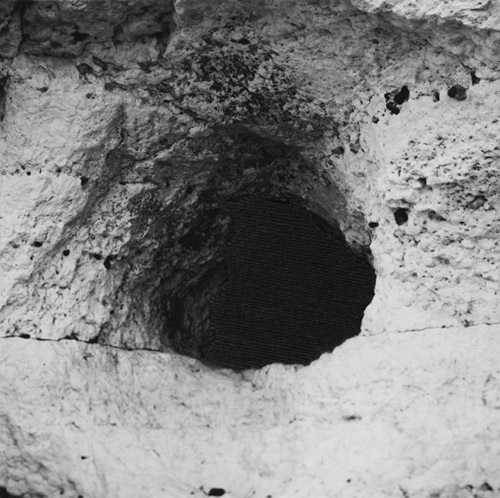
Louise Oates, photography.
There are roughly four times the number of people living alone today in the U.K., as in 1960. I am sure it’s even higher in the U.S. Adam Phillips in one of his books described what he saw as deeply sane. The deeply sane — “They don’t need to be understood; they don’t need recognition.” He suggests many other qualities, but this idea of recognition is key I think. But not-recognized by who? Who is not recognizing you? The sane person doesn’t care. The hyper narcissist cares a great deal… in a way. Now the banishing of Freud’s notion of the ‘death drive’ has very regressive consequences. No matter if one thinks it rubbish or not. The fact that it is banished is what is important here. For the ruling class fear the guillotine. The childhood that has no journey to school, no passing of the metaphorical cemetery is the same iPad pathway that has exiled the death instinct. Today the hyper narcissist cares who it is that might not be recognizing them, but they don’t care at all who IS recognizing them.
“The death drive restores to psychoanalysis its subversive potential, just when
everything had gone quiet. The death drive lives on in the black market of psychotherapy.
Imagine therapy, with its professionalism and its popularity, and then
there is something else! Something intractable, irremissible, lying hidden at the
heart of things – the black economy upon which the whole white economy depends
but without any acknowledgement of that fact, just as the visible universe is
held together by so-called “Dark Matter”.”
Rob Weatherill
When I ask why it is that finding a dead parent, one who hanged themselves, affects one’s whole life, the answer is only to be found, really, in that metaphysical black market. Years ago in Warsaw the old stadium was converted (well, sort of) into a flea market of sorts. Mostly on weekends. Thousands of small booths, kiosks, tables, with all manner of grey economy items for sale or barter. I used to love that place. Nobody reputable worked there, and that was the appeal. But of course the forces of bourgeois society shut it down. As they shut down that walk past the cemetery, and ideas such as the death drive. Freud’s actual writings on this subject link it very closely with repetition. And I’ve always found this work perhaps the most compelling in all Freudian literature. Now, Beyonce’s bourgeois self love display took place on the field of an NFL game, a game that now serves as poster child for the death drive.
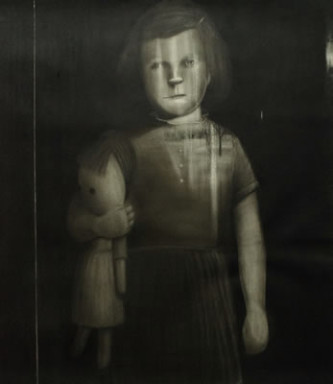
Fred Valentine
“Death is manifested in repetitions of thought, fantasy, and behavioral action, parapraxes, in masochism and sadism, in symptoms such as melancholia, paranoia, and psychosis, and in the uncanny, just to name a few. Death residue impregnates repressed schemata that find expression in repeating the unconscious material itself as it is happening in the moment rather than remembering what had been an occurrence of the past. When repressed events take the form of “fresh experiences” rather than properly ascribing to them the reproduction of the past, reality is clouded with negativity, affective contagion, paranoiac phantasy, and subsequently, qualitative suffering.”
Jon Mills
There is an odd echo in all this of modern physics. In particular, with relation to entropy.
“All systems organizing themselves or decreasing their entropy, whether the growing of a carrot, a snowflake, or a child, are decreasing entropy in one location that must be accompanied by a greater entropy generation in another.”
Victor Mansfield
The Buddhists I know would point out that the failure to recognize our manufacturing of an independent existence, a projection, is the basis for our addictive attachment to suffering. But I digress. Sort of. For there is a kind of clarification needed, I think, regards this hallucination of a *now*. And it was remembering various Buddhist scripture that brought it to mind (sic). The West today tends to encourage a very almost clinical need to predict things, to risk manage one’s existence, and to connect those predictions to our definition of self. This is exactly NOT living in the now, or in the moment. So the hallucinatory now is really not a now at all, it is, as I think I called it before, a *dead now*. Which cleverly segues back to the death drive and Bernhard’s butcher shop.

Martha Rosler
The need to cleanse public discourse is realized through cleansing private discourse as well. The end of reading, and certainly its modification via the internet, is key in how people think about their society. Surveillance, in one sense, is almost the projection of an already totally administered society. Part of the reason nobody seems to give a shit about NSA and FBI surveillance, and TIA for that matter, is because for many if not most people, that surveillance already happened. The loss of privacy is a given. Nobody even thinks about it. And this is partly because they have nothing private in their lives. Privacy itself is almost extinct, both as a material fact and metaphorically. The non reader is the non introspective. Growing up with a tacit understanding that nothing is private means that the world ‘out there’ is identical to what is in here, and both are what Debord labeled the Spectacle. So this need for recognition by the spectacle is not felt to be an unusual want. And this is why there is a deep anxiety about NOT being seen. Why am I not on the CCTV screen. Now, naturally this is not true of everyone, or nearly everyone. Still, as a collective generalization, it is certainly trending in that direction.
“The new pornographers subvert this last, vital privacy; they do our imagining for us.”
George Steiner

Caravaggio (St Jerome Writing, 1605)
The death drive, Freud said very clearly, is nearly impossible to grasp. It is more like a background noise. Yet, it is mute. Rob Weatherill described it as ‘haunting normality’, a spectral figure behind familiarity. And this is its importance, I think. It is a place, a space, a zone of thought and metaphor that is uninhabited but filled up anyway. And it is filled with doubt. Blanchot said it was a danger watching over us. And again this suggests the importance of that walk to school that leads past the cemetery. If the child is exposed to death, to the first intimacy after its mother, then this secret is less feared. The imagination, that which precipitates the creative, is only operative in secret. It IS privacy itself. Creativity is not public. The result of creative activity is public (and that is a whole other discussion), but the urge to create is private. I read a study, for what it’s worth, that said artists tended to stay awake much later than other people. I am certain there is truth in this. The night is a private domain and most artists I know, especially writers, work late into the night.
The erasing of privacy is partly tied in with the new hyper super ego. Traditionally the super ego is the law of the father (now dead). For Lacan, this is the order of the symbolic. The law is impersonal, and yet it is experienced today, I think, as part of a register of ownership that helps define the individual. The individual’s sense of him or herself is as a servant to the super ego. And this is also where screen life, cyberspace, becomes a part of childhood development. Social media is there to echo our idea of ourself. But we only ‘use it’, as we use a tool. Except not quite. For the tool uses us equally, if not more. For we are offered choices, corporate created choices. Our self definition, then, is one of shopping for the right app. Click like or not. Add an emoticon. And there is pervasive sense of repetition in this, of masturbation. And masturbation is a super ego issue. Weatherill wonders if children born after the mid 90s are living in a world without metaphor. And this was partly my point at the very top of this posting. If children today have no memory of life before social media, before the internet, then the idea of the material world is very abstract. Is it real or is it Memorex. There is no longer a life on the extremity, for there is no extremity. There is though a kind of new kind of aphasic madness, and in a society heavily medicated with anti depressants the ability to differentiate private and not private has eroded.
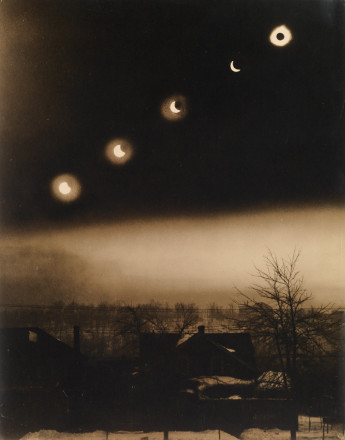
Conningham & O’Brien. (1925, total eclipse of the sun).
“Future historians may come to characterize the present era in the West as one of a massive onslaught on human privacy, on the delicate processes by which we seek to become our own singular selves, to hear the echo of our specific being. This onslaught is being pressed by the very conditions of an urban mass-technocracy, by the necessary uniformities of our economic and political choices, by the new electronic media of communication and persuasion, by the ever-increasing exposure of our thoughts and actions to sociological, psychological, and material intrusions and controls. Increasingly, we come to know real privacy, real space in which to experiment with our sensibility, only in extreme guises: nervous breakdown, addiction, economic failure. Hence the appalling monotony and publicity—in the full sense of the word—of so many outwardly prosperous lives. ”
George Steiner
But even the transgressive is now a designer transgressive. The tedious quality Steiner notes in pornography can be extended to all the various confessional memoirs on the market. Drug addiction stories are amazingly interchangeable. And more, the new celebrity activist (Molly Crabapple for example) is a pre-fabricated paint by numbers story of narcissism. Zizk, too, a celebrity thinker (sic) or anyone writing for VICE of Gawker are breathtakingly alike in tone and sensibility, and all of them are writing about themselves first, and the social justice issue second (or third, or not at all). Zizek will sell out his lecture at the Left Forum almost certainly. Not because anyone thinks he is going to say anything new or meaningful (well, OK, a few will), but because he is a celebrity. Crabapple’s deceitful and shameful snitching practice barely registers for her readers because such an audience is not exactly reading as we have come to think of it. Nor do they care. This is cyber fashion shopping. And at the end of this is the banishment of debate. When bell hooks observes that Beyonce is a kind of terrorist, she is widely attacked. And yet, Beyonce is simply furthering servitude to the system. I read one article that said, well, we know Beyonce is capitalist, we don’t need to be told that. The logic then ended with a criticism of Beyonce was a criticism of women.
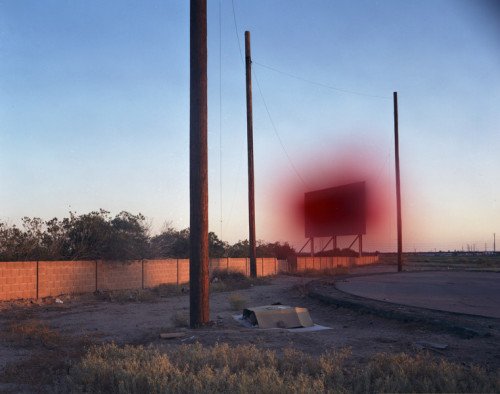
Taiyo Onorato & Nico Krebs. Photography.
There is a correspondence between cultural representations of death, and the durability of certain religious/societal systems. The traction of Puritanism is partly because its a convenient justification for certain repressions, and partly because it is the cause of others. Lacan saw Freud’s death drive in light of the disintegrating mosaic that is the self. These fragments, glued together throughout our lives, start to crumble and break apart. An imaginary unity is dissolving. Representations of death, then, are also fragmentary or bathed in pseudo scientific language and image. Or, because the West remains Puritan, they are tied into Eros. The fusion of erotic intimacy is always being assaulted by the organs of the Empire of death. If primary masochism is the death drive projected outward, then it makes sense for an administered society to prematurely balkanize elements of erotic experience. Fetishize. And sadism is the death drive externalized. And that which excites the sadistic, the eroticizing of extreme violence, is logical for the organism trained and conditioned to keep that happy face smile in place. In other words for Lacan the binding of erotic energy is the imaginary which must eventually be unbound by the death instinct. Administered eros, that which binds an ornate psychological realm of Capital and pseudo self is in a sense the perfect foil (it exists, in one sense FOR the power of those unbinding elements) for the destructive forces of the death drive. Satan and Kali are there to rip apart of fabric of illusion. As a side bar note, I have always felt Capt. Ahab was Melville’s Kali, not the whale. But anyway, Lacan de-biologizes the death drive and in that sense its useful to it as something closer to a never emptied reservoir of originary power, a power working to unbind those illusory qualities of the ego, and self. The repetition of this interface is almost tidal. The constant re-murdering of the imaginary ego.
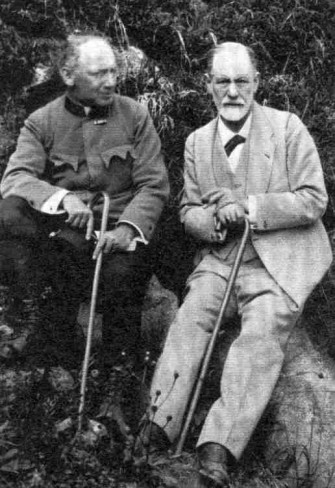
Ferenczi and Freud, 1918.
The dismissing of the Freudian death drive is a peak inner cop moment. For this is the concept that is akin to displaced immigrants, it is has always been intellectually vulnerable. And often those that dismiss it (I would say 98% of the intelligent people I know would object to this idea of Freud’s) are doing so because they think in a Utopian socialist paradise such aggressions will disappear. Well, perhaps, but Zizek keeps getting invitations and Trump is running as a reincarnation of Mussolini crossed out with George Lincoln Rockwell and John D. Rockefeller. The most painfully obvious embodiments of anti life forces continue to surface. Repetition. Masturbate while Rome burns. Hillary Clinton or Joints Chief, or Antonin Scalia, mercifully now departed, or the Koch Brothers; all embodiments of self disgust.
“Sadism is to be conceived as a turning outward of a more primitive masochistic tendency. This view led Freud to the revolutionary thesis that all aggression and destructiveness in human beings is, according to its original nature, self-destructiveness. This means that human aggressiveness is to be understood neither as
a reaction of self-defense nor as a result of an innately brutish disposition, but rather as an expression of an internal conflict of the individual human being with itself.”
Richard Boothby
It is likely that Beyond The Pleasure Principle is one of the most significant texts in the Western canon, and probably among its most neglected. Of course it was never popular, and has become increasingly actively unpopular. But for all the ‘reasoned’ and sensible (sic) rejections of this book, the real reason for its unpopularity is religious — and I mean that in a very broad sense. One of the secrets of repressive religious dogma is let of the bag, to employ a cliche. It also is an affront to the assumptions of therapy itself, to a culture of self help. With the exception of Ferenczi, nobody in the psychoanalytic field even discussed the death drive until Lacan.
“The desire of man is constituted, he {Hegel} tells us, under the sign of
mediation, it is desire for the recognition of his desire.”
Lacan
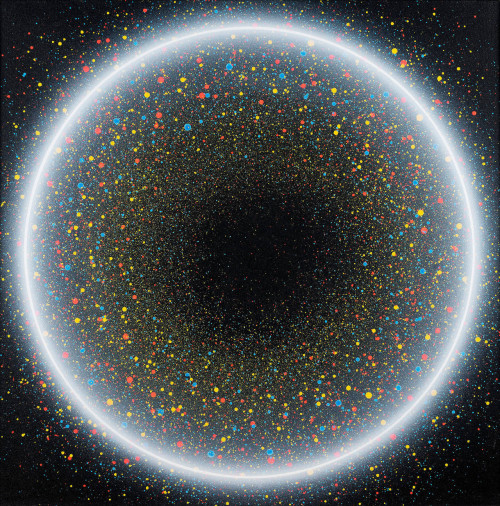
Tadasky
There are things worth noting in the idea of violence and aggression being a displaced violence and hatred of ourselves. And I suspect the social or collective intercedes here. Fukushima continues to poison the oceans. But it is barely a blip on any news feed of the moment. Climate change, whatever the reason, is clearly real and clearly potentially catastrophic — in places anyway — and yet nothing is done. Beyonce gets much more attention. And the NFL is a league that features a sport known to cause severe brain damage and even death, and yet is remains the most popular sport in the U.S. How does one interpret all this? Our alienation is from ourselves, not from outsiders. The outsider is charged with displaced aggression really more correctly linked to the imaginary ego.
I have often been fascinated with how American Presidents age. For that matter, most tyrants age badly. Some don’t, but the majority seem to be suffering the crippling effects of a psychic blowback from their outward cruelty. The fascist, as I think I noted before, is always self loathing. The more one affirms and insists on their own identity, the more frustration accrues and the more alienation. The repetition compulsion is the heart of this, in one sense. Richard Boothby, whose book on Lacan and Freud is among the best, writes:
“The repetition compulsion apparently presented an instance in which pain experienced by the ego resulted not merely from the pressure of instinctual forces repressed by the ego, but from a specific will to mistreatment of the ego for its own sake. The repetition compulsion represented, in effect, a compulsion of the patient to torment his own ego. It indicated the activity of a “primordial masochism.”
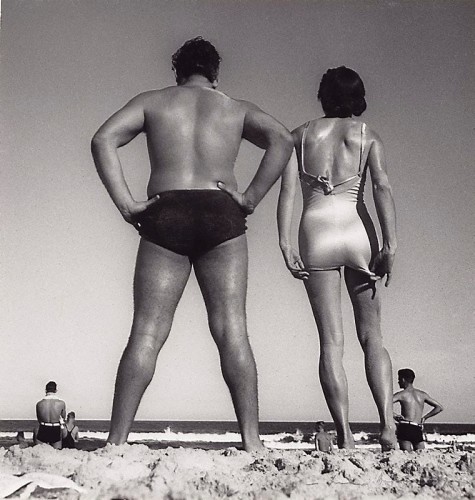
Max Dupain, photography. Bondi Beach, 1939.
So, in the end the questions of creativity and imagination intersect with Death. And staying with Freud for a moment longer, the death instinct is, like so many other concepts of pyschoanalysis, a super ego question. That inner cop, the Cotton Mather voice in our head, the Calvinist sensibility, the super ego is nonetheless much disputed in terms of its formation.
One of my favorite quotes of Lacan (and one Boothby sites) is….
“If God doesn’t exist, the father [Karamazov] says, then everything is
permitted. Quite evidently, a naive notion, for we analysts know full
well that if God doesn’t exist, then nothing at all is permitted any
longer.”
The super ego is closer to the Id than it is to the ego. That is the first thing and the second is that the super ego is policing ourselves. The thus policed self in turn acts out the prohibitions used against it. It duplicates them, or repeats them. Now, in a society of control, and one of severe developmental mediation by the spectacle (as it were) the child grows up anticipating the need to punish. Or, to witness punishment. Television loves lawyer shows about prosecutors, not public defenders. It loves cops. And even those growing up under occupation by brutal racist police departments will still identify, even if only partially, with stories of punishment. For the crime story is primordial and always about our own guilt. Imperialist proxy wars are sort of duplicating the super ego’s exercising of warrants it receives from the Id. The majority of people do not want war, and it is those in power who manufacture these aggressions, because they have the power to do so. Still, those in opposition to such wars are rarely free of their own interior wars. And increasingly, the generation *now* reacts at only a level of super narcissism. But many of the contradictions in all this are linked to neurotic guilt. And here is where I think Cixous’ observations on the imagination and writing are so relevant (and remember that Lacan saw language as the core fact, if not the totality of the *symbolic*). This is very mysterious territory, and even in Freud, let alone Lacan, the secondary pleasure (well, this is contested certainly) that the super ego takes in carrying out its policing is logical if it is really an emissary of the Id.
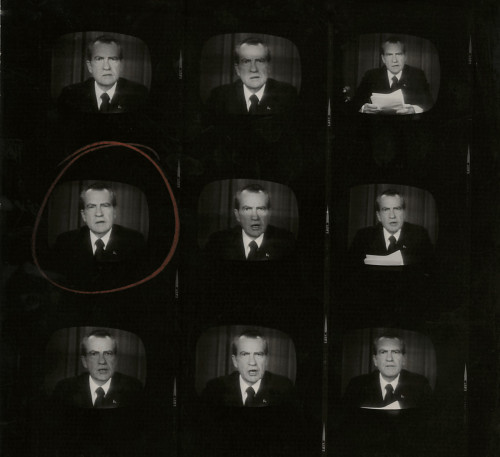
Larry C. Morris, photography. (contact sheet, Nixon’s resignation speech 1974).
The child who develops in a world without metaphor also is growing up in a world where language is only purely functional. Writing is then the writing of instructions. Everything is an operating manual for your new Landrover. And hence, again, Debord’s observation about generalized autism. Speedy processing, but a linear one dimensional processing that keeps goals in mind, solutions, ends. The child in Kafka’s story, walking past the cemetery today simply doesn’t notice the cemetery. Or rather, if Lacan is right that the insertion of the subject into the symbolic, when it fails, and it is bound to fail, results in a regression of the death drive to the imaginary — then the children of the screen are going to be doubled down on in terms of aggression. The language that cannot rise to metaphor, is really a regressed language that one sees today in mass culture. And what happens when language expresses only the most reductive notions, those associated with how to program your micro wave?
Cixous speaks of the necessary monsters of children’s fairy tales. And the illusory comfort of identity cards. “When we say to a woman that she is a man, or to a man that he is a woman, it’s a terrible insult. This is why we cut one another’s throats.” In stories, imposters are hugely important. We understand the imposter for we know that is one of our secrets. The murderer usually wears a mask. The terrorist has forged papers. For life is living metaphor. In an age of surveillance, no matter if it works or not and it mostly doesn’t, the CCTV or facial recognition software is really not discovering anything, it is killing metaphor and allegory. Stories of missed text messages carry no mythic weight. For the child does not go to school and walk past pixels.

Speak Your Mind